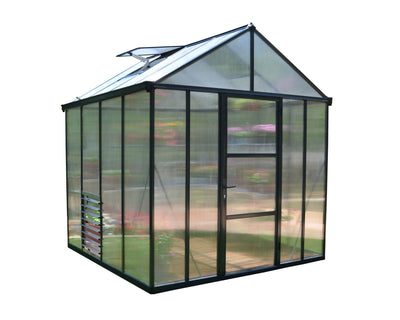Can You Compost in Winter? Yes – Here's How in NZ Conditions
Composting Through the Cold
Many New Zealand gardeners think composting needs to be put on hold during winter, but that’s far from the truth. While colder temperatures do slow microbial activity, composting remains entirely viable with the right adjustments. In fact, continuing to compost through winter helps maintain momentum in your sustainability routine, provides nutrient-rich compost for spring planting, and keeps food and garden waste out of landfills year-round.
Composting in winter simply requires a shift in mindset and a few tweaks to your method. The key is understanding how to support the decomposition process when temperatures drop and rainfall increases, both of which influence the balance of materials, airflow, and moisture retention in your bin.
Managing Moisture and Material Balance
One of the most important considerations during winter is moisture control. Frequent rain and high humidity can cause your compost pile to become overly wet, leading to poor aeration, slow breakdown, and unpleasant odours. Covering your compost bin with a waterproof lid or tarp is essential to protect it from rain. But even more crucial is maintaining the right ratio of materials: every handful of nitrogen-rich “green” waste (like veggie scraps or coffee grounds) should be matched with two to three parts of carbon-rich “brown” material such as shredded cardboard, dry leaves, or straw. These browns absorb excess moisture and allow air to circulate, which helps keep your compost pile active and healthy.
If your compost is soggy, add more browns until it regains a loose, crumbly texture. Remember, your compost should feel like a wrung-out sponge, moist but not dripping wet.
Choosing the Right Compost System for Winter
While traditional open-air compost heaps can work in summer, they struggle in winter. To improve efficiency, consider switching to an enclosed bin or insulated system. These help trap heat, keep pests out, and maintain consistent moisture levels. Composting solutions like worm farms and bokashi bins are especially effective in winter. Worm farms can be kept in sheltered outdoor spots or garages, where the temperature stays stable enough to support active worm colonies. Bokashi systems are fermentation-based and don’t rely on ambient warmth, making them ideal for use indoors throughout winter.
These systems not only maintain decomposition more effectively but also suit households with limited space or time. If you’re composting in an urban setting, these compact bins are discreet, easy to manage, and highly productive.
Keeping Your Compost Active
To maximise compost performance in cold conditions, break food scraps into smaller pieces before adding them, this speeds up the decomposition process. Avoid composting meat, dairy, or oily foods, which can take longer to break down and may attract pests. Turning your compost pile less frequently in winter helps conserve internal heat, but don’t forget to maintain some level of airflow, gentle mixing every few weeks is usually enough.
If your compost seems dormant or cold, wrap the bin in old blankets, carpet, or straw bales to add insulation. You can also jumpstart microbial activity by adding a scoop of finished compost, a handful of garden soil, or a compost activator.
Why It’s Worth the Effort
Composting through winter isn’t just about reducing waste, it’s a long-term investment in soil health. By spring, you’ll have a rich supply of organic matter ready to be worked into garden beds, containers, or raised plots. That means fewer fertilisers, better plant growth, and more resilient soil.
To make winter composting easier and more efficient, check out our range of bokashi systems, worm farms, and enclosed bins, all designed to keep your compost working regardless of the season. With the right tools and a little patience, winter can be one of the most productive times to compost.
















